Digital Marketing Course Syllabus (2024)
If you’re aiming to become a job-ready digital marketer in 2024, having a clear and structured learning path is essential. This is where a comprehensive digital marketing syllabus and course curriculum come into play, providing the clarity you need on the key topics to master.
With experience in training over 10,000+ digital marketing students at Internet Gurukul, I’ve meticulously crafted this syllabus to guide you. By following this syllabus, you’ll acquire all the critical skills and knowledge necessary to position yourself among the top 1% of digital marketers in India.
A digital marketing course is suitable for anyone looking to enhance their digital marketing skills or start a career in this dynamic field. Whether you’re a professional, entrepreneur, student, or someone aiming to advance their career in marketing, this syllabus will provide you with the insights and expertise needed to succeed.
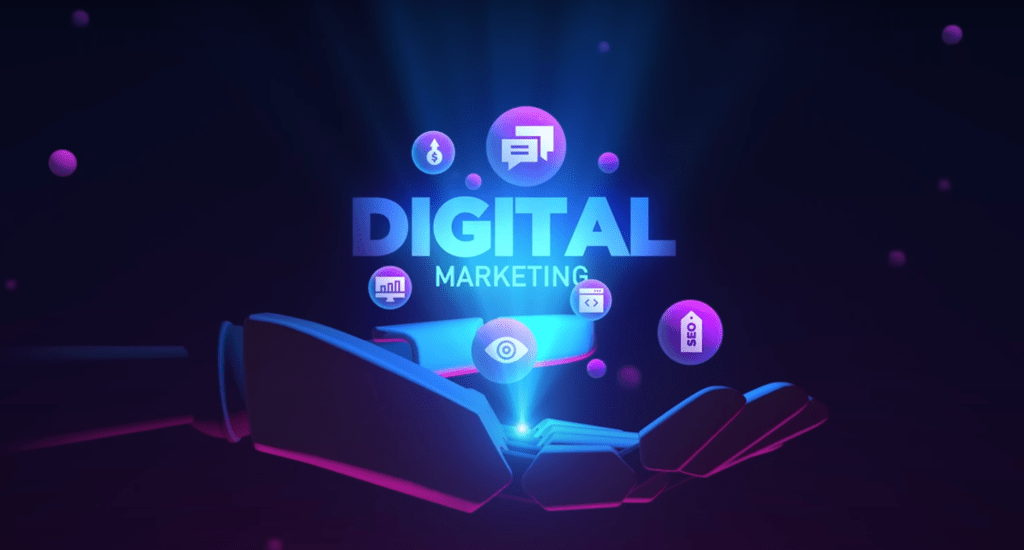
Digital marketing is a complex field that encompasses various specialized areas. Internet Gurukul’s digital marketing training course provides an opportunity to learn about all aspects of digital marketing, including its tools, strategies, and tactics that experienced marketing professionals currently use in the industry.
Here’s a summary of the different modules offered in Internet Gurukul’s digital marketing syllabus.
Digital marketing course syllabus
Introduction To Digital Marketing
Website Planning & Analysis
Search Engine Optimization
Search Engine Marketing
Social Media Marketing
Generative AI in digital marketing (New)
Google Tag Manager
Display Advertising
e-Commerce Marketing
Mobile Marketing
App Store Optimization
Content Marketing & Blogging
Online Reputation Management
Affiliate Marketing
Email Marketing
Influencer Marketing
Marketing & Sales Automation
Growth Hacking
Web Analytics
Video Advertising
Module 1: Introduction To Digital Marketing
The first module focuses on delivering advertising through digital channels. The course offers an overview of how it equips students with the necessary skill sets to create a successful online marketing strategy.
- The definition of digital marketing
- The importance of businesses running online marketing campaigns
- Comprehending how digital marketing benefits businesses
- The goals behind creating a website
- The responsibilities of a digital marketer
- An introduction to online advertising
- Various revenue models are available
- Creating a successful digital marketing strategy
Module 2: Website Planning & Analysis

The module will guide how to plan the website creation process to avoid problems such as low speed and poor navigation. The focus is on creating an intuitive and user-friendly website.
- Up-to-date website development trends
- Definition and importance of domain names and extensions
- Identifying the best hosting servers
- Understanding various server types
- Utilizing a content management system
- Popular user experience trends
- Defining website objectives
- Essential steps in website creation
- Conducting a comprehensive SEO audit
Module 3: Search Engine Optimization

In this module, participants will be exposed to various forms of SEO, including on-page and off-page SEO. The module will also cover creating a link tree to improve website ranking.
- An Overview of SERP and SEO
- Gaining insight into search engine operations
- Traffic and its meaning
- Different types of keywords
- Techniques for identifying the best keyword
- Strategies for keyword optimization
- Content planning and optimization
- Internal linking and its importance
- Techniques for creating effective meta tags
Module 4: Search Engine Marketing
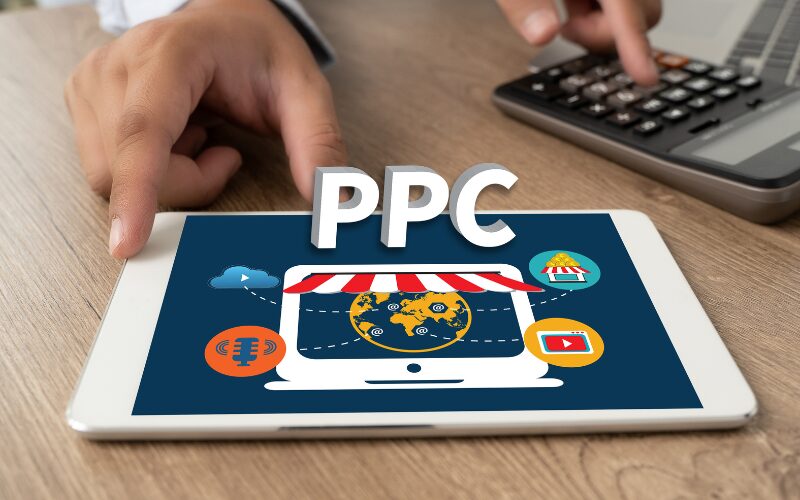
Various advertising types and implementation approaches will be covered in this module, providing comprehensive knowledge of search engine marketing.
- Introduction to Google AdWords
- Techniques for creating effective ad campaigns
- Overview of Microsoft AdCenter
- Finding the appropriate budget for ad campaigns
- Understanding your target audience for better results
- Using dynamic ads to improve ad performance
- Explanation of display advertising and its benefits
- Methods for remarketing and its importance
- Conversion tracking techniques to measure success
- Different automation strategies for better ad management
- Explanation of Ad Rank and its Importance
- Overview of different pricing models such as CPC, CPM, and CPA
Module 5: Social Media Marketing

The module will provide instruction on utilizing social media platforms’ data analytics tools to track ad campaign performance. It will also cover techniques for communicating with existing and potential customers through promotional efforts.
- Introduction to various social media platforms
- Techniques for achieving high user engagement on social media
- Understanding the importance of building a community on Facebook
- Methods for promoting your brand on social media
- The fundamentals of using Twitter and LinkedIn for business
- Optimizing your Google Plus profile and utilizing Google My Business
- Techniques for creating a successful branding strategy on Social media
Module 6. Ai in Digital Marketing
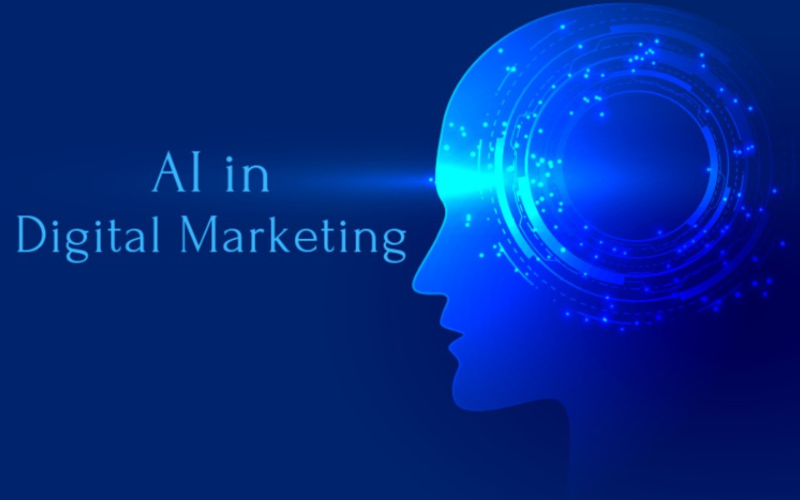
This module covers the role of AI in digital marketing, including chatbots, predictive analytics, content optimization, personalization, and ad targeting.
- Understand the applications of AI in digital marketing: chatbots, predictive analytics, content optimization, personalization, and ad targeting.
- Develop skills for the future marketer: AI skills, data analysis, collaboration, content creation, and continuous learning.
- Gain fundamental knowledge of generative AI: machine learning, neural networks, unsupervised learning, and probabilistic modelling.
- Explore large language models (LLMs): language understanding, generation, translation, summarization, and question answering.
- Recognize the capabilities and limitations of LLMs: text generation, lack of grounded reasoning, and evolving nature.
- Learn prompt engineering: effective prompting, hands-on practice, time-saving techniques, and productivity boost.
Module 7: Google Tag Manager
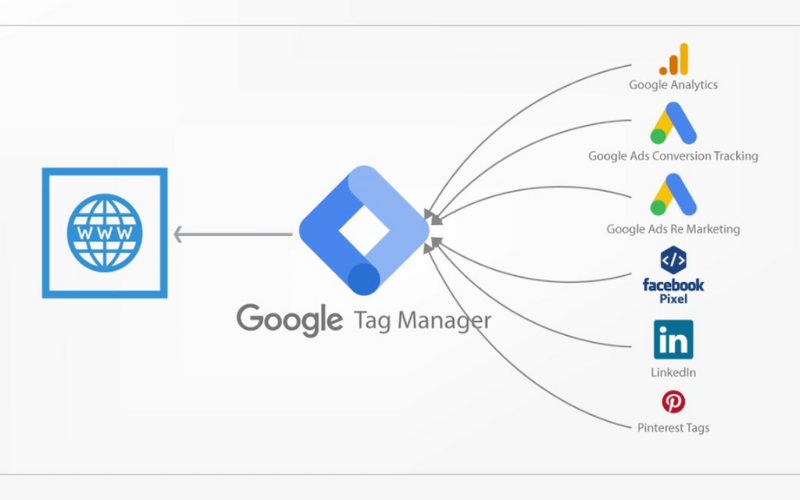
GTM offers a comprehensive toolkit for tracking website activity, and this module will cover the various settings and features of GTM to maximize its benefits.
- Explanation of tags and their functionality
- Techniques for setting up web and mobile apps for tag tracking
- A step-by-step guide to creating a GTM account and container
- Adding, updating, and publishing tags in GTM
- Understanding tags and triggers in GTM
- Overview of variables and the data layer in GTM
- Implementation scenarios for data layer events in GTM
Module 8: Display Advertising

The module will provide training on the best practices for running display advertising campaigns and the various charging methods used in these campaigns. Additionally, this module will cover the use of display advertising as retargeting campaigns, which target users who have previously visited a specific website.
- Overview of different types of display advertising
- Understanding pixel sizes based on display types
- Explanation of pricing models for display ads
- Techniques for topic and placement targeting
- Overview of GDN reserve
- Methods for finding interest categories for display advertising
- Explanation of contextual keyword targeting
- Techniques for performing remarketing using display advertising
Module 9: Video Advertising

In this module, you will receive training on how video advertising operates and how to target a specific audience niche to achieve a high click-through rate. Additionally, you will learn how to create engaging and visually appealing videos that will resonate with your audience.
- Overview of video advertising
- Defining objectives for video advertising campaigns
- Using YouTube Ads for video advertising
- Setting up video ad campaigns on YouTube
- Familiarizing with different ad formats for video advertising
- Implementing auction management techniques
- Optimizing video ad campaigns for better performance
- Understanding YouTube analytics for video advertising
- Reviewing successful video advertising case studies
Module 10: eCommerce Marketing

In this module, learners will be taught comprehensive eCommerce marketing tactics applicable both within and outside their website.
- E-commerce definition
- Different E-commerce platforms
- Significance of SEO in E-commerce
- Developing a robust E-commerce plan
- Creating product listing ads
- Establishing enhanced E-commerce tracking
- Explanation of E-commerce conversion tracking
- Determining measurement of sales revenue
- Comprehending customer lifetime value.
Module 11: Mobile Marketing

In this module, upon completing the digital marketing certificate program offered by Internet Gurukul, learners will acquire the skills and knowledge necessary to utilize mobile marketing to its maximum potential effectively.
- Familiarization with diverse types of mobile devices
- Explanation of mobile marketing and social media
- Definition of mobile analytics
- Importance of having a mobile-responsive website
- Overview of various methods of mobile advertising and search
- Techniques for executing mobile content marketing
- Mobile Pay-Per-Click advertising
- Mobile video marketing
- Comprehension of how mobile E-commerce functions.
Module 12: App Store Optimization

In this module, learners will acquire knowledge about all aspects of App Store Optimization (ASO) and the latest tactics for implementing ASO strategies for their application.
- ASO basics
- Overview of App Store and Google Play Store
- Comprehension of Keyword Optimization
- Asset Optimization techniques
- Analysis of competition among mobile applications
- Significance of localization in ASO
- Explanation of the importance of reviews in ASO.
Module 13: Content Marketing & Blogging

In this module, learners will be taught that content marketing and blogging involve discovering the appropriate language to engage readers and maintain their interest in the content.
- Content marketing definition
- Overview of various content types
- Identification of effective marketing strategies
- Creation of audience personas and content maps
- Development of a traffic channel plan
- Techniques for overcoming content marketing challenges
- Learning content promotion and increasing sales
- Methods for creating original and engaging content
- Understanding content dissemination techniques
- Familiarization with the concepts of blogging.
Module 14: Online Reputation Management
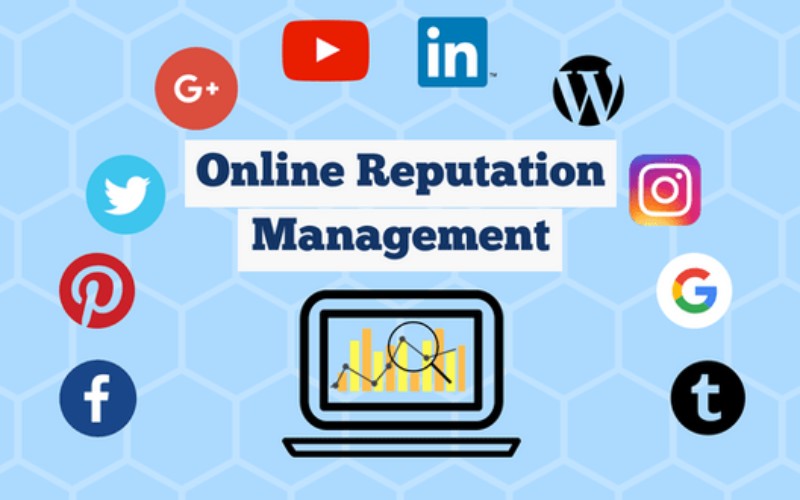
In this module of advanced digital marketing training, learners will be taught several approaches for generating, enhancing, and responding to online reviews that customers post about their businesses.
- Explanation of Online Reputation Management (ORM) and its Applications
- Acquisition of different ORM strategies
- Significance of listening to brand conversations
- Identification of methods for measuring brand sentiments
- Techniques for resolving negative conversations
- Management of negative search results
- Examination of a recent case study concerning online reputation crises
Module 15: Affiliate Marketing

This module will educate learners on the various strategies to develop a successful affiliate marketing campaign.
- Explanation of affiliate marketing tactics
- Overview of how affiliate marketing works
- Identification of profitable affiliate niches and products
- Techniques for developing an exceptional affiliate website
- Digital strategies for increasing affiliate traffic
- Management of rejections
- Examination of real-life digital marketing campaign examples of obtaining approvals
- Introduction to Google Adsense
- Explanation of the Amazon Affiliate marketing program
- Understanding of affiliate programs such as Clickbank
Module 16: Email Marketing

This module aims to instruct students about the advantages of email marketing and the diverse strategies that can be utilized to succeed in their email marketing campaigns.
- Definition of email marketing
- Development and management of an email list
- Introduction to email marketing tools
- Creation of an email marketing campaign
- Explanation of open rates and techniques for optimizing them
- Enhancement of Return on Investment (ROI) and utilization of A/B testing
- Examination of the most effective email marketing methods
- Techniques for creating compelling email messages
- Analysis and measurement of email marketing efforts
Module 17: Influencer Marketing

This module will equip you with the essential skills to successfully manage and execute an influencer marketing campaign. Additionally, you will be taught the necessary steps to become a prosperous influencer marketer yourself.
- Understanding the significance of influencer marketing
- The role of Influencers in driving sales growth
- Establishing objectives for the influencer program
- Identifying influencer archetypes and communication styles
- Managing influencer relations
- Creating a measurement framework to evaluate the effectiveness of influencer marketing efforts
Module 18: Marketing & Sales Automation

In this marketing training module, you will learn about digital marketing tools that utilize automation to streamline various tasks.
- Learning about demand generation and its working
- Understanding lead management and marketing automation
- Analyzing the impact of automation on the sales funnel
- Developing a demand generation strategy
- Understanding the lead management process
- Increasing sales and revenue for the organization
- Exploring ways to capture more leads
- Improving conversion rates
- Managing the sales process using automation and more
Module 19: Growth Hacking

In this module, you will learn how to leverage creativity to develop cost-effective strategies for acquiring and retaining customers for a business.
- Defining growth hacking
- Developing a growth mindset
- Exploring various growth hacking techniques
- Understanding the A2R2 framework
- Building a growth-oriented culture in your team
- Learning growth analytics
- Scaling up your growth hacks
- Studying unicorn growth hacks
Module 20: Web Analytics

The module will provide instructions on measuring website activity and behaviour, such as the number of visitors, time spent on the website, popular web pages, and other relevant metrics.
- Introduction to Google Analytics
- Explanation of how Google Analytics works
- Overview of real-time data tracking
- Analyzing and gaining insights from website data
- Understanding different types of goals in Google Analytics
- Techniques for creating custom dimensions in Google Analytics
- Methodologies for utilizing enhanced eCommerce in Google Analytics
- Integration of Google Analytics with other tools such as Search Console.
